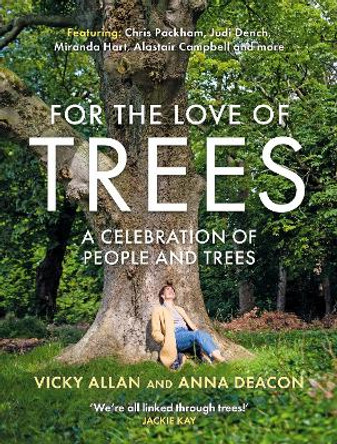This is a book about religious conceptions of trees within the cultural world of tree worship at the tree shrines of northern India. Sacred trees have been worshipped for millennia in India and today tree worship continues there among all segments of society. In the past, tree worship was regarded by many Western anthropologists and scholars of religion as a prime example of childish animism or decadent ''popular religion.'' More recently this aspect of world religious cultures is almost completely ignored in the theoretical concerns of the day. David Haberman hopes to demonstrate that by seriously investigating the world of Indian tree worship, we can learn much about not only this prominent feature of the landscape of South Asian religion, but also something about the cultural construction of nature as well as religion overall. The title People Trees relates to the content of this book in at least six ways. First, although other sacred trees are examined, the pipal-arguably the most sacred tree in India-receives the greatest attention in this study. The Hindi word ''pipal'' is pronounced similarly to the English word ''people.''Second, the ''personhood'' of trees is a commonly accepted notion in India. Haberman was often told: ''This tree is a person just like you and me.'' Third, this is not a study of isolated trees in some remote wilderness area, but rather a study of trees in densely populated urban environments. This is a study of trees who live with people and people who live with trees. Fourth, the trees examined in this book have been planted and nurtured by people for many centuries. They seem to have benefited from human cultivation and flourished in environments managed by humans. Fifth, the book involves an examination of the human experience of trees, of the relationship between people and trees. Haberman is interested in people's sense of trees. And finally, the trees located in the neighborhood tree shrines of northern India are not controlled by a professional or elite class of priests. Common people have direct access to them and are free to worship them in their own way. They are part of the people's religion. Haberman hopes that this book will help readers expand their sense of the possible relationships that exist between humans and trees. By broadening our understanding of this relationship, he says, we may begin to think differently of the value of trees and the impact of deforestation and other human threats to trees.
About the AuthorDavid L. Haberman is Professor of Religious Studies at Indiana University Bloomington.
Reviewsengaging and accessible ... Haberman's book brings attention to an important yet understudied aspect of Hindu religious experience, providing a wealth of ethnographic detail, along with compelling theoretical reflections on the limits of concepts such as animism and anthropomorphism ... Recommended. * R.C. Rinehart, CHOICE *
The book provides rich insights * Deepa Idnani, South Asia Research *
Haberman's People Trees is an excellent piece of scholarship * Harrison King, Religion *
This is a positive book. * Joshua Nash, Journal of Hindu Studies *
Book InformationISBN 9780199929160
Author David L. HabermanFormat Paperback
Page Count 256
Imprint Oxford University Press IncPublisher Oxford University Press Inc
Weight(grams) 408g
Dimensions(mm) 155mm * 231mm * 15mm








